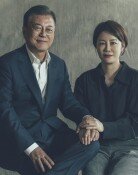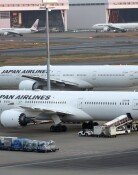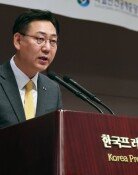[Editorial] Bush, Koizumi and Roh
U.S. President George W. Bush told John Bolton, U.S. Ambassador to the UN, Not to put Japans Prime Minister Junichiro Koizumi in a tight spot in relation to the adoption of a resolution on North Korea by the U.N. Security Council. Koizumi has insisted on a hard-line response against North Korea, pursuing the adoption of a resolution that could lead to armed sanctions. Bush did not want the prime minister to be pushed aside by the moderate China and Russia into a tight spot. Since the Norths missile launches, Koizumi and Bush have spoken in one voice. This incident is a clear example of how Bush goes to great lengths to care for a partner.
The two heads of state confirmed their close cooperation and trust through summits before the missile launches and phone calls after the launches. The day after the launches, Bush called Koizumi and the two agreed to cooperate in pushing for the adoption of a U.N. resolution against North Korea. Bush also talked to President Roh Moo-hyun that day. The Korean government was relieved that the two presidents agreed to find a diplomatic solution through dialogue. In other words, the Korean government emphasized that President Bush agreed with its assessment of the situation as less than a crisis and its efforts to find a diplomatic solution. However, the final outcome of all the diplomatic process was the first resolution against North Korea since the Korean War.
After the adoption of the Security Council resolution, the U.S. and Japan agreed to strengthen the PSI and review additional financial sanctions against the North, demonstrating unwavering trust. On the other hand, the Korean government only expressed its support for the resolution in a statement by the Ministry of Foreign Affairs and Trade. Roh fell silent again.
Earlier, Roh said during a dinner with the leaders of the Uri Party on July 11 that We cant demand too much from the U.S. since it is our ally. However, we should stand up to Japan. Roh still does not seem active in finding a solution through a trilateral cooperation between Korea, the U.S. and Japan. He doesnt provide any solution that can win support from the public, either. Rohs self-contradiction may decrease options that Koreans can choose from and ultimately lead to the loss of national interest. The public knows this.







